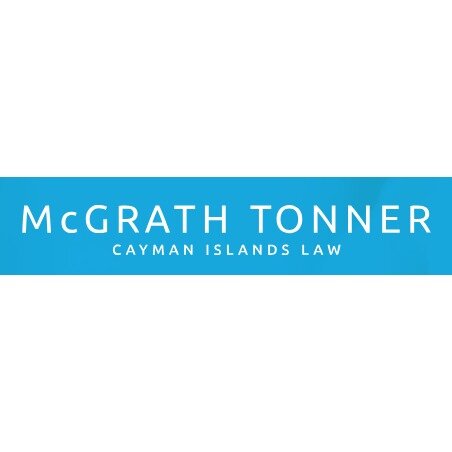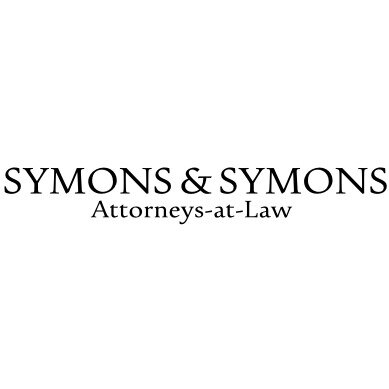Best Housing, Construction & Development Lawyers in Cayman Islands
Share your needs with us, get contacted by law firms.
Free. Takes 2 min.
Free Guide to Hiring a Real Estate Lawyer
Or refine your search by selecting a city:
List of the best lawyers in Cayman Islands
About Housing, Construction & Development Law in Cayman Islands:
Housing, Construction & Development law in Cayman Islands governs the legal aspects related to real estate, property development, and construction projects in the jurisdiction. This area of law regulates the rights and responsibilities of property owners, tenants, developers, contractors, and other stakeholders involved in the housing and construction industry.
Why You May Need a Lawyer:
You may need a lawyer specializing in Housing, Construction & Development law in Cayman Islands for various reasons, including legal disputes over property rights, contract issues, zoning regulations, building permits, land use issues, construction defects, landlord-tenant disputes, and other legal matters related to housing and development projects.
Local Laws Overview:
In Cayman Islands, the Housing, Construction & Development law is governed by various statutes, regulations, and local ordinances. Some key aspects include property laws, planning regulations, building codes, environmental regulations, strata laws, landlord-tenant laws, and other relevant legal provisions that impact housing, construction, and development activities in the jurisdiction.
Frequently Asked Questions:
1. Can a landlord evict a tenant without following the proper legal procedures?
No, landlords in Cayman Islands are required to follow the legal procedures outlined in the Residential Tenancies Law to evict a tenant. Failure to do so may result in legal consequences for the landlord.
2. What are the regulations for building permits in Cayman Islands?
Building permits are required for construction projects in Cayman Islands, and they are issued by the Cayman Islands Planning Department. It is essential to comply with the local regulations and obtain the necessary permits before commencing any construction work.
3. Are there any restrictions on property ownership for foreigners in Cayman Islands?
Foreigners are allowed to own property in Cayman Islands, subject to certain restrictions and regulations. It is advisable to seek legal advice to understand the requirements and implications of owning property as a foreigner in the jurisdiction.
4. What are the legal rights of tenants in Cayman Islands?
Tenants in Cayman Islands have legal rights protected under the Residential Tenancies Law, which governs the relationship between landlords and tenants. These rights include the right to a habitable dwelling, privacy, and protection against unfair practices by landlords.
5. How can I resolve a construction dispute in Cayman Islands?
If you are involved in a construction dispute in Cayman Islands, it is advisable to seek legal assistance from a lawyer specializing in construction law. They can help you navigate the legal process and resolve the dispute through negotiation, mediation, or litigation.
6. What are the consequences of violating planning regulations in Cayman Islands?
Violating planning regulations in Cayman Islands can result in fines, penalties, and legal actions by the authorities. It is crucial to comply with the local regulations and obtain the necessary approvals before undertaking any development or construction activities.
7. Are there any tax implications for property transactions in Cayman Islands?
Property transactions in Cayman Islands may be subject to various taxes, including stamp duty, property transfer tax, and other taxes. It is recommended to seek legal advice to understand the tax implications of buying, selling, or transferring property in the jurisdiction.
8. How can I protect my rights as a property owner in Cayman Islands?
To protect your rights as a property owner in Cayman Islands, it is essential to be aware of your legal rights and obligations under the local laws. Seeking legal advice can help you understand your rights, resolve disputes, and ensure compliance with the legal requirements related to property ownership.
9. Can I challenge a zoning decision by the local planning authority?
If you disagree with a zoning decision made by the local planning authority in Cayman Islands, you may have the right to challenge the decision through legal channels. It is recommended to seek legal advice to understand the options available for challenging zoning decisions and protecting your interests.
10. What are the legal requirements for property development projects in Cayman Islands?
Property development projects in Cayman Islands are subject to various legal requirements, including obtaining building permits, complying with zoning regulations, environmental assessments, and other regulatory approvals. It is important to consult with legal experts to ensure compliance with the legal framework governing development projects in the jurisdiction.
Additional Resources:
For more information and resources related to Housing, Construction & Development law in Cayman Islands, you can consult the following: - Cayman Islands Government - Department of Planning - Cayman Islands Real Estate Brokers Association - Cayman Islands Legal Practitioners Association
Next Steps:
If you require legal assistance in Housing, Construction & Development matters in Cayman Islands, it is advisable to seek the services of a qualified and experienced lawyer specializing in this area of law. They can provide you with legal advice, representation, and guidance to protect your interests and navigate the complex legal landscape governing housing, construction, and development activities in the jurisdiction.
Lawzana helps you find the best lawyers and law firms in Cayman Islands through a curated and pre-screened list of qualified legal professionals. Our platform offers rankings and detailed profiles of attorneys and law firms, allowing you to compare based on practice areas, including Housing, Construction & Development, experience, and client feedback.
Each profile includes a description of the firm's areas of practice, client reviews, team members and partners, year of establishment, spoken languages, office locations, contact information, social media presence, and any published articles or resources. Most firms on our platform speak English and are experienced in both local and international legal matters.
Get a quote from top-rated law firms in Cayman Islands — quickly, securely, and without unnecessary hassle.
Disclaimer:
The information provided on this page is for general informational purposes only and does not constitute legal advice. While we strive to ensure the accuracy and relevance of the content, legal information may change over time, and interpretations of the law can vary. You should always consult with a qualified legal professional for advice specific to your situation.
We disclaim all liability for actions taken or not taken based on the content of this page. If you believe any information is incorrect or outdated, please contact us, and we will review and update it where appropriate.
Browse housing, construction & development law firms by city in Cayman Islands
Refine your search by selecting a city.
















